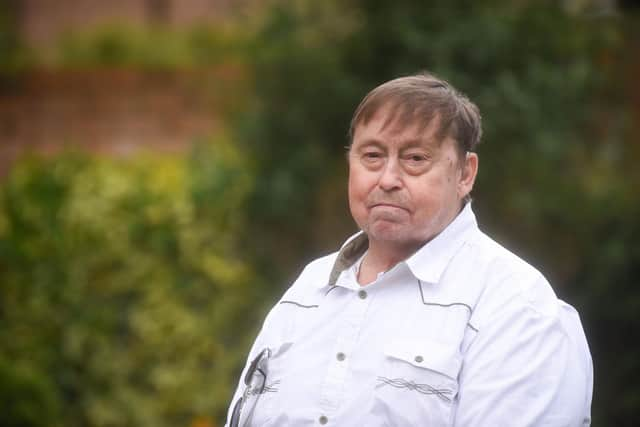St Annes man who agreed to have life support switched off if risky brain surgery went wrong horrified to discover ‘do not resuscitate’ order remained five years later
and live on Freeview channel 276
Alan Willis, 62, suffered a stroke in 2011 which led to him being rushed from Blackpool Victoria Hospital to Royal Preston Hospital with a serious bleed on the brain.
Before undergoing a risky three-hour procedure, he told his wife, Sheena, that he should be allowed to die if the operation did not succeed.
Advertisement
Hide AdAdvertisement
Hide AdHe said: “My wife and I had spoke about what should happen in a near-death situation, and I decided if I was in a vegetative state then she should give permission for no resuscitation.”


Luckily, the dad-of-one, who lives on Heyhouses Lane, survived the operation and went on to make a full recovery.
Five years later, in July 2016, he was admitted to Blackpool Victoria Hospital once again after a blood test revealed dangerously low levels of potassium in his body, putting him at risk of high blood pressure and heart failure. There, he says he was horrified to discover the DNR order which had been entered under his name years before remained in place.
He said: “My blood tests were showing my potassium levels were only 1.7, which is dangerously low. My doctor rang me at home at 7pm and said go to hospital, so I went first thing in the morning. I was admitted onto a ward and the doctor came up and started writing ‘do not resuscitate’ on the board behind me.
Advertisement
Hide AdAdvertisement
Hide Ad"I said, hang on whats all this about? He said, five years ago you were put on a ‘do not resuscitate’ order.
“That was in the case of the stroke, which I was fully recovered from by the time this happened. But they weren’t going to do anything. I was sent there by a doctor in case of heart failure, and if it happened they weren’t going to try to save me. I basically raised merry hell.”
Alan says he was then taken off the DNR order, but added: “A doctor who I didn’t know rang my wife and went through all my illnesses and tried to get her to keep me on the DNR notice.”
He remains concerned about the state of such orders at the hospital, as the sisters of Blackpool hotelier James Craig recently claimed one was put on his file without their knowledge.
Advertisement
Hide AdAdvertisement
Hide AdJames, 63, of Milbourne Street, died on July 4, 2019, of pneumonia caused by chronic obstructive pulmonary disease (COPD), nearly one month after being admitted to the Vic with a chest infection.
His sister Rosemary said: “My brother loved life. He went mad when he thought there was a DNR on his file earlier that year.”
Alan said: “Clearly this is a problem that is going on. When I saw the article, it brought it all back to me. How many other people don’t realise they’ve actually been put on the DNR list?
“If they put you on a DNR, it shouldn’t carry on. There's clearly something very wrong with that.
“I stood up for myself, but if I hadn't, and I’d had a heart attack, I wouldn’t be here today. There may be more people in the same boat but have no idea.”
